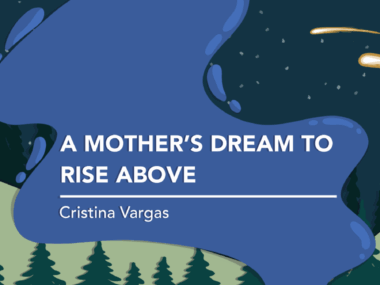Soon I’ll Be Racing for Real Again
Written by |

My sister, Taylor, was diagnosed with CLN1 disease on a hot summer day in 2006, during the “Dark Ages” of Batten disease research, before we knew much about symptom management. So, when the geneticist who confirmed the diagnosis told my parents that doctors couldn’t do anything to help the bright-eyed little girl with a demon lurking in her DNA, he meant it.
If you’re familiar with my sister’s story and Taylor’s Tale, the organization she inspired, you know what happened next: We stubbornly refused to accept a situation of no hope, and instead launched a global effort that galvanized our spirits and quickly fueled real progress. For the first couple years, I really believed we would save my youngest sibling.
But by 2013, when we kickstarted a gene therapy study at the University of North Carolina (UNC), Taylor was struggling. I knew then that everything we’d achieved would help other children someday, yet it wouldn’t help my sister. I was fighting my own demons by then, too: I’d poured most of my 20s into giving Taylor a chance, with nothing (at least in my mind) to show for it.
I described how it felt to watch Taylor slip away in my 2018 book, “Run to the Light“:
“I used to fight Batten disease like it was a sprint. It took me a long time to learn that Batten disease is more like a marathon. You start off strong, with lots of energy. You have runner’s highs and lows. Some days you think you could run forever. But then some days you feel like when you cross the finish line, you’ll be so glad to see it—so exhausted—you’ll just be happy it’s over. Some families, families whose kids have died, have told me in the end it’s like that. It’s so bad, so freaking ugly, they can’t face it anymore. It isn’t even about making happy memories at that point. It’s about their kid’s dignity and their own survival, and about finding peace.”
In all that ugliness, the image of my blind sister finishing her first 5K race, her head held high and her face turned toward the sky, shone brightly. That’s why, later that year, I ran a half-marathon blindfolded. And to my surprise, what started at least partially as a PR stunt saved my life. The thought of losing Taylor still scared me, yet I wasn’t running away any longer. Instead, I was running to the light.
Running blind helped me understand that if you want to vanquish fear, you have to run toward it.
In 2014, I started my next challenge, flying cross-country for a race in Oregon: the first of 50 states. And over the next five years, I knocked out states like my sister beat odds, nearly reaching the halfway point before the COVID-19 pandemic brought my quest to a screeching halt after state 23.
Since then, I’ve continued running for Taylor, but I’ve done it without crowds and aid stations and race bibs and real finish lines. Instead, I’ve run virtual half-marathons close to home, using that time alone and the hours of training to think about what’s next in my own fight against Batten disease.
After all, my sister died more than two years ago. Strictly speaking, my family has nothing to gain from the miles I log or the media we earn or the gene therapy trial that resulted from that long-ago UNC study, which should begin accepting patients soon.
Why do I still do it, then? Why torment the joints I destroyed playing soccer before I ran a single race? Why keep Taylor’s Tale alive? Why write this column?
Because the biggest race still matters, just like the virtual races I ran in 2020 and earlier this year. Because I don’t need a medal or a treatment for my sister to give it all purpose. Because while our fight against Batten disease couldn’t save Taylor’s life, it became her legacy. Because there will always be another Taylor. And when I finally run another (real) race in my 24th U.S. state later this month, I’ll be running for her.
***
Note: Batten Disease News is strictly a news and information website about the disease. It does not provide medical advice, diagnosis, or treatment. This content is not intended to be a substitute for professional medical advice, diagnosis, or treatment. Always seek the advice of your physician or other qualified health provider with any questions you may have regarding a medical condition. Never disregard professional medical advice or delay in seeking it because of something you have read on this website. The opinions expressed in this column are not those of Batten Disease News or its parent company, Bionews, and are intended to spark discussion about issues pertaining to Batten disease.





Leave a comment
Fill in the required fields to post. Your email address will not be published.